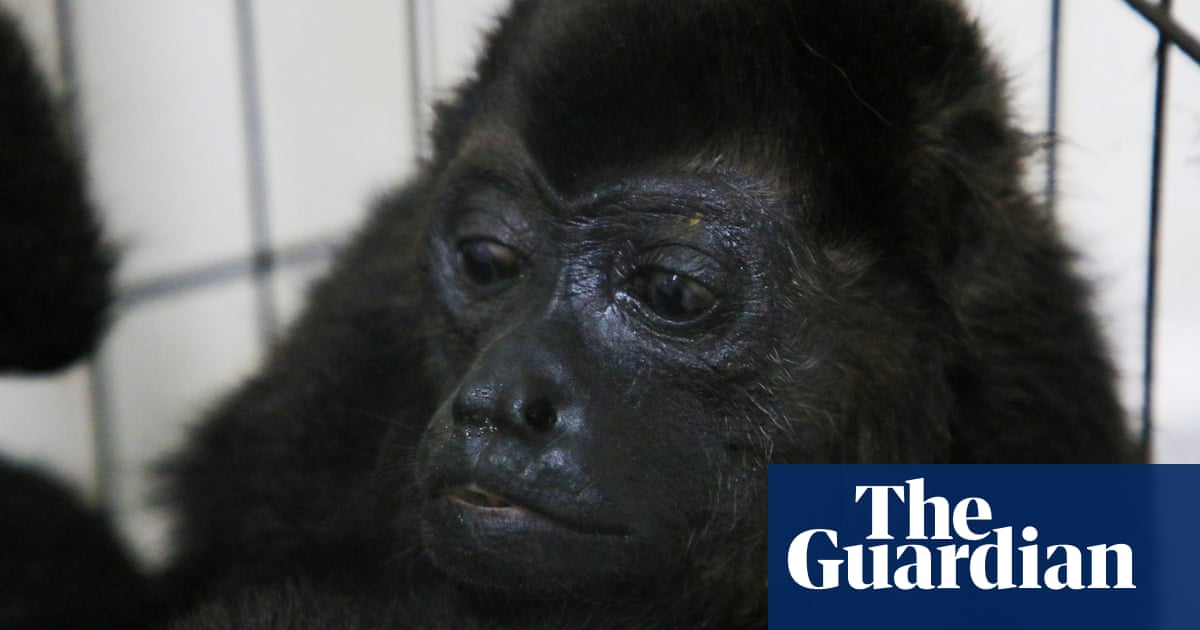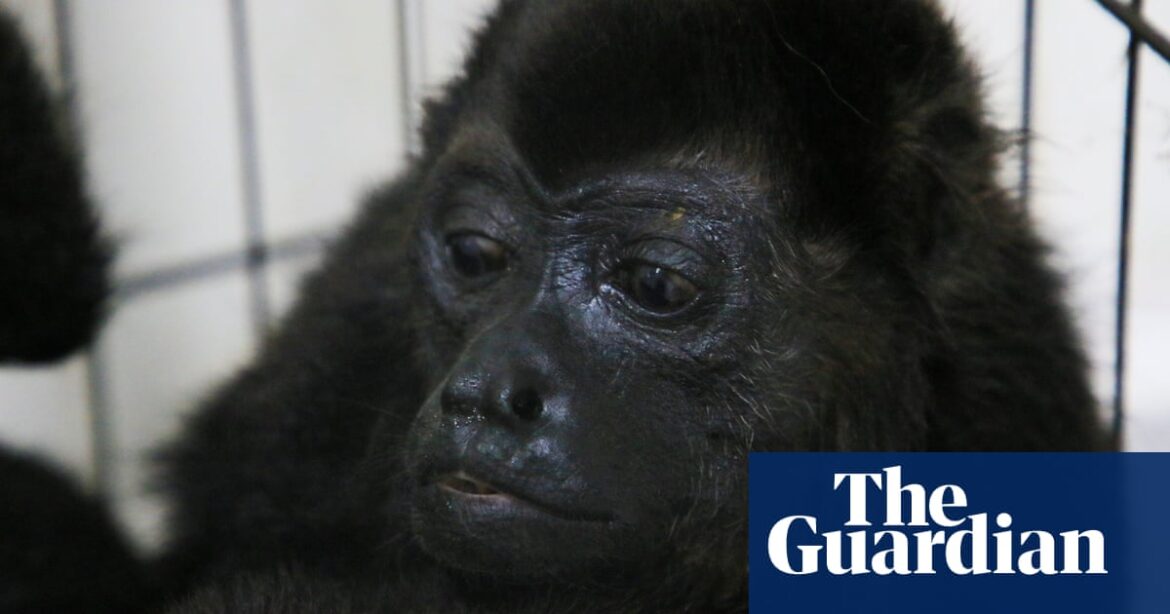
It’s so hot in Mexico that howler monkeys are falling dead from the trees.
At least 83 of the midsize primates, who are known for their roaring vocal calls, were found dead in the Gulf coast state of Tabasco. Others were rescued by residents, including five that were rushed to a local veterinarian who battled to save them.
“They arrived in critical condition, with dehydration and fever,” said Dr Sergio Valenzuela. “They were as limp as rags. It was heatstroke.”
While Mexico’s brutal heatwave has been linked to the deaths of at least 26 people since March, veterinarians and rescuers say it has killed dozens and perhaps hundreds of howler monkeys.
In the town of Tecolutilla, Tabasco, the dead monkeys started appearing on Friday, when a local volunteer fire-and-rescue squad showed up with five of the creatures in the bed of the truck.
Valenzuela put ice on their limp little hands and feet, and hooked them up to IV drips.
So far, the monkeys appear to be on the mend. Once listless and easily handled, they are now in cages at Valenzuela’s office. “They’re recovering. They’re aggressive … they’re biting again,” he said, noting that was a healthy sign for the usually furtive creatures.
Most aren’t so lucky. Wildlife biologist Gilberto Pozo counted about 83 of the animals dead or dying on the ground under trees. The die-off started around 5 May and hit its peak over the weekend.
“They were falling out of the trees like apples,” Pozo said. “They were in a state of severe dehydration, and they died within a matter of minutes.” Already weakened, Pozo says the falls from dozens of yards (meters) up inflict additional damage that often finishes the monkeys off.
Pozo attributes the deaths to a “synergy” of factors, including high heat, drought, forest fires and logging that deprives the monkeys of water, shade and the fruit they eat.
“This is a sentinel species,” Pozo said, referring to the canary-in-a-coalmine effect where one species can say a lot about an ecosystem. “It is telling us something about what is happening with climate change.”
after newsletter promotion
Pozo’s group has set up a special recovery stations for monkeys – it currently holds five monkeys, but birds and reptiles have also been affected – and is trying to organize a team of specialized veterinarians to give the primates the care they need.
By 9 May at least nine cities in Mexico had set temperature records, with Ciudad Victoria, in the border state of Tamaulipas, clocking a broiling 117F (47C).
With below-average rainfall throughout almost all the country so far this year, lakes and dams are drying up, water supplies are running out and authorities have had to truck in water for everything from hospitals to firefighting teams. Low levels at hydroelectric dams have contributed to power blackouts in some parts of the country.
Humans are feeling the heat as well. On Monday, the nationwide chain of OXXO convenience stores – the nation’s largest – said it was limiting purchases of ice to just two or three bags per customer in some places.
Source: theguardian.com



